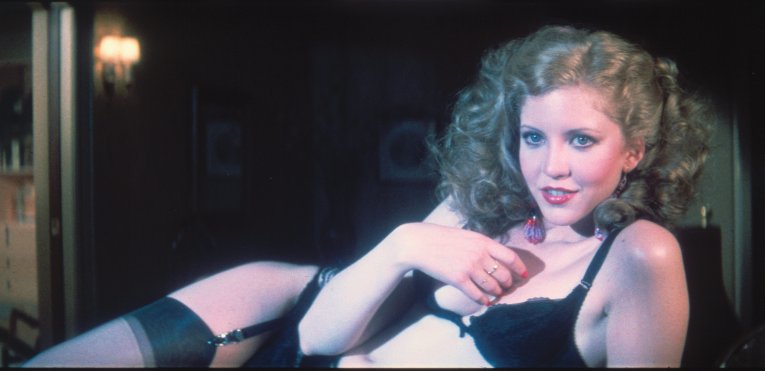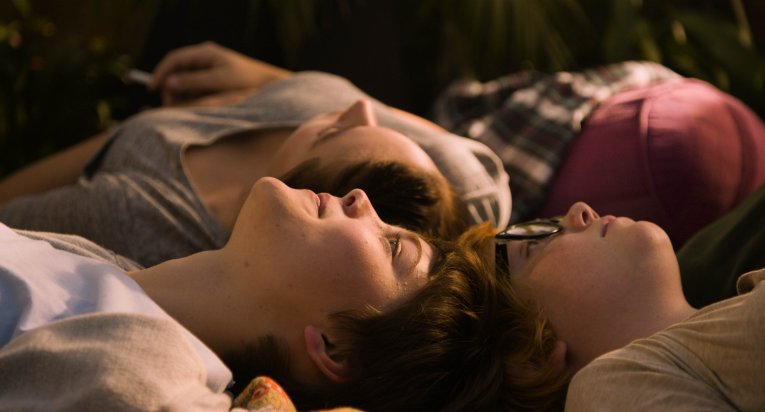
Harriet Taylor Producer, Community Organiser and Writer.
on Fri 27 Jan 2023Reflections and Refractions: Gender on Screen
Posted on Fri 27 Jan 2023
Harriet Taylor discusses her upcoming season, Reflections and Refractions: Gender on Screen.
For some time now I’ve been feeling oddly reflective. Perhaps it is something to do with the aftermath of a global pandemic, or that I am approaching a milestone birthday at the time of writing this. Or perhaps it’s because fourteen years after I’d begun my gender transition, I am now witnessing a younger generation going through the same familiar struggles. I admire them for their strength and resilience, which they mostly don’t recognise in themselves. I wonder if I’d had that in me years ago, when I didn’t feel it either but somehow made it here.
As much as I would be inclined to shore off the personal side to this article and speak wholly of the films I’ve curated in purely technical measures, to do so would be to lose the point of this season. Gender identity is personal, and I feel the responsibility to state that foremost. I also cannot downplay the importance cinema has in my life and see it in the starkest terms. I believe doing so would be to reduce film to a binary, of good and bad, right and wrong, when in reality it exposes us to the murky grey areas where it sits – perhaps uncomfortably to some – as both.
Take for instance Toshio Matsumoto’s 1969 experimental feature Funeral Parade of Roses; an incendiary and revolutionary piece of filmmaking, which helped spark the Japanese New Wave. Solely in the context of a financially barren, politically disparate, post-war Japan, where a flagging film industry would sooner import foreign features than invest in risky domestic productions, it was perhaps as ground-breaking as Joyland today. But most significantly to me, Funeral Parade marks the beginnings of trans cinema. There may be earlier examples of gender fluidity, crossdressing, and drag to note on a comprehensive timeline, but Funeral Parade is at least when gender first becomes explicit.
Aesthetically forward thinking, beautifully anarchic, it was a revelation to see this film for the first time. I was completely in awe of what I was seeing. It not only spoke to my burgeoning queer identity, but completely rewrote my notions of what a film was supposed to be, feeling like the various, confusing strings of my internal wiring were being tightly pulled, coursing with sensory overload, glamour, and a freedom from inhibition. It’s certainly not without its faults, but still feels like a powerful “fuck you” to everything surrounding it, and I couldn’t think of a more fitting start to the season in that regard.
However, the full picture of trans representation on film was much more distressing over decades to come, particularly in the west. We can attribute this largely to the ignorance and laziness of cishet auteurs and screenwriters to do better. Enter: Brian De Palma’s Dressed To Kill – a sheer overdose of schlocky thrills, voyeurism, and unflinching excess.

This is a particularly difficult title to speak about, not just because of its content, but how it is worked into the narrative. Instead of spoiling the screening, I’d rather keep my criticism short. However, one should note it is among the most brazenly transphobic narratives in the history of cinema, and its inclusion in this season is primarily to emphasise this point. It cannot be excused, but also cannot be ignored for what it is.
Thankfully, after navigating those stormy waters, we set on a calmer course. The final two films of the season I would consider to be something of a pairing for their themes and influences: Sally Potter’s Orlando and Alexandra Therese-Kiening’s Girls Lost. Perhaps the connection isn’t outrightly obvious, but Virginia Woolf’s Orlando: A Biography inspired and was loosely adapted by Potter, which then influenced Therese-Keining’s coming-of-age feature. In my mind, I imagine a hall of mirrors to represent this chain of interpretation. Convex and concave surfaces of various shapes and sizes to designed to distort, exaggerate and confuse dimensions; a series of whimsical impressions across time and space, which are then reflected back at us one final time on the cinema screen itself.

There is a value in seeing oneself reflected on screen, which I feel both Orlando and Girls Lost do with tremendous effect. Potter’s film plays with gender non-conformity so easily, with such humour and grace, and it is freely accepted. Girls Lost amps it up with twin doses of teen angst and fairy-tale whimsy. What appears clumsy and naïve about the film at first glance actually encapsulates the tumultuous highs and lows of nascent gender identity with real sincerity. At times it reminds me of Celine Sciamma’s Water Lilies, or Lukas Moodysson’s Show Me Love, and would play equally well alongside either for their sympathetic gaze of complex relationship dynamics in adolescence.
It is truly exciting to be bringing this particular programme to Watershed, and I am hopeful, as February fast approaches, that as broad an audience as possible will be able to engage with these films and discourses as intimately as I have over the years.
Reflections and Refractions: Gender on Screen runs Sun 5 - Sun 26 Feb.

